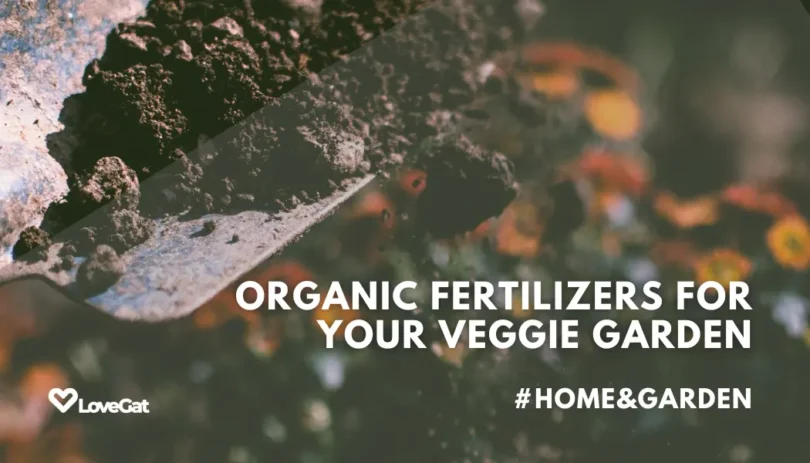Creating Organic and Natural Fertilizers for Your Vegetable Garden!
Fertilizing your vegetable garden is essential for ensuring healthy plant growth and maximizing yields. While commercial fertilizers are readily available, many gardeners prefer to use organic and natural alternatives to promote soil health and minimize environmental impact. In this guide, we’ll explore various methods for creating organic and natural fertilizers for your vegetable garden, providing you with sustainable options to nourish your plants and soil.
Benefits of Organic and Natural Fertilizers
Before delving into specific recipes and techniques, let’s first understand the benefits of using organic and natural fertilizers in your vegetable garden:
-
Soil Health: Organic and natural fertilizers help improve soil structure, fertility, and microbial activity, promoting long-term soil health and vitality.
-
Environmental Sustainability: Unlike synthetic fertilizers, organic and natural fertilizers are derived from renewable resources and are less likely to leach harmful chemicals into the soil and water.
-
Nutrient Retention: Organic and natural fertilizers release nutrients slowly over time, reducing the risk of nutrient runoff and ensuring that plants have access to essential nutrients when they need them.
-
Improved Plant Health: By promoting balanced nutrient uptake and soil biology, organic and natural fertilizers contribute to overall plant health, resilience, and disease resistance.
Homemade Organic Fertilizer Recipes
Now, let’s explore some simple yet effective recipes for creating organic and natural fertilizers for your vegetable garden:
1. Compost Tea
2. Seaweed Fertilizer
Seaweed is a natural source of trace minerals and growth-promoting hormones, making it an excellent fertilizer for vegetable gardens. To make seaweed fertilizer, collect fresh seaweed from the beach or purchase dried seaweed from a garden center. Rinse the seaweed thoroughly to remove excess salt and then soak it in water for several days. Strain the liquid and dilute with water before applying to your vegetable plants as a foliar spray or soil drench.
3. Fish Emulsion
Fish emulsion is a potent organic fertilizer made from decomposed fish or fish waste. To make fish emulsion, blend fish scraps or fish parts with water in a blender or food processor until smooth. Transfer the mixture to a container and let it ferment for several weeks, stirring occasionally. Dilute the fish emulsion with water before applying it to your vegetable garden as a liquid fertilizer. Fish emulsion provides a rich source of nitrogen, phosphorus, and trace minerals to support healthy plant growth.
4. Manure Tea
Manure tea is a nutrient-rich liquid fertilizer made from steeping aged animal manure in water. To make manure tea, fill a burlap sack or permeable bag with aged manure, such as cow, horse, or chicken manure. Place the bag in a bucket of water and let it steep for several days to several weeks, depending on the desired strength. Dilute the manure tea with water before using it to fertilize your vegetable garden. Manure tea provides a balanced blend of nutrients and organic matter to nourish your plants and improve soil fertility.
Application Tips
When using homemade organic fertilizers in your vegetable garden, consider the following application tips for best results:
-
Apply Sparingly: Homemade organic fertilizers can be potent, so use them sparingly to avoid over-fertilization and nutrient imbalances.
-
Water Thoroughly: After applying organic fertilizers, water your vegetable plants thoroughly to help nutrients penetrate the soil and reach the plant roots.
-
Monitor Plant Response: Pay attention to how your plants respond to organic fertilizers and adjust your fertilization regimen accordingly. Watch for signs of nutrient deficiencies or excesses and make any necessary adjustments.
-
Rotate Fertilizers: To ensure balanced nutrition, rotate between different types of organic fertilizers throughout the growing season, incorporating compost, seaweed fertilizer, fish emulsion, and manure tea as needed.
Creating organic and natural fertilizers for your vegetable garden is not only environmentally sustainable but also promotes soil health, plant growth, and overall garden productivity. By harnessing the power of compost, seaweed, fish, and manure, you can nourish your plants with essential nutrients while minimizing your environmental footprint.
Experiment with different homemade fertilizer recipes, observe how your plants respond, and fine-tune your fertilization practices to meet the unique needs of your vegetable garden. With a little creativity and resourcefulness, you can cultivate a bountiful and thriving vegetable garden that provides nutritious, homegrown produce for you and your family to enjoy. Happy gardening!
You Might Also Like
- How I used AI to create a living data visualization for our home
- 20 Cool Home Decor And Designs For Any Style
- Planning a garden? Here’s a step-by-step guide to start off on the right foot
Social Media Communities
Share your digital nomad experiences and connect with fellow Us:
- Instagram: @Lovegatofficial
- Facebook: @LoveGat
Your journey doesn’t end here. Continue to explore and share our Decor & Home Posts.







